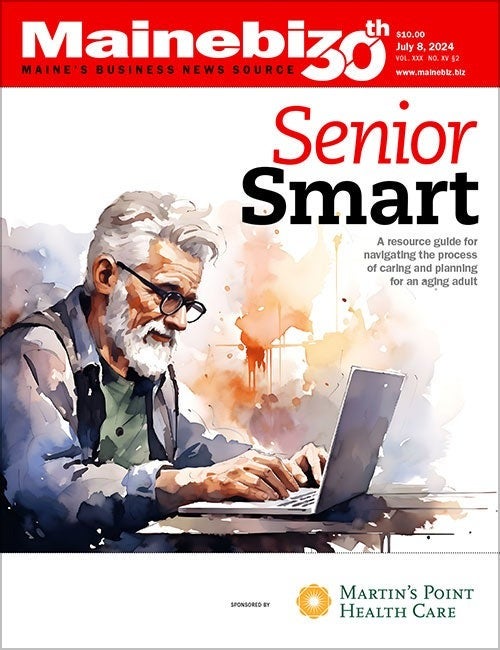Avoid workplace fouls | Office pools and their pitfalls

March Madness office pools are as much a harbinger of spring as the first robin. But are they as welcome?
Don’t bet on it, says Jonathan Shapiro, a labor lawyer and partner at Fisher & Phillips in Portland. A Duke University Law School graduate, Shapiro is passionate about the annual college basketball tournament, as are about 60 million others who follow the three-week event.
Some social scientists estimate productivity at American businesses suffers during the tournament to the tune of $4 billion off the bottom line as co-workers chat about standings, monitor the games from their work stations and debate which team will emerge number one. And an office betting pool can gum up the works even more.
Shapiro says business owners would be wise to avoid endorsing gambling in the workplace, even when it’s just a March Madness pool. Still, Shapiro says as long as a manager understands the risks involved, there are many advantages to office pools. “It really is a team-building and bonding experience among employees who might not socialize otherwise,” says Shapiro. Pools can relieve a little of the anxiety prompted by a lousy economy where layoffs are rampant and everyone is scaling back their discretionary spending. “People are thinking, ‘I can’t buy an iPod or an HD TV, but for three weeks I can take pleasure in a $5 bet in the office pool’,” says Shapiro. “That’s a good value in a down economy.”
If your office is into the Madness, make sure to be aware of the following risks:
Office pools are, technically, illegal if money is involved. OK, so no one expects the employee lounge to be raided, but Maine statutes clearly prohibit this type of gambling, says Shapiro. The other side of the equation is the risk of prosecution, which Shapiro says has been characterized to him by law enforcement officials as “very, very slim and none … and slim is on vacation.” Still, the law is the law and there are added risks if minors are involved in the office pool.
It can create a hostile work environment. Shapiro says employers have to be sensitive to employees who have moral objections to gambling or those who feel pressured to participate in an office pool. If a worker complains, he or she can later say any ensuing discipline directed at them was actually retaliation by their supervisors, even if the claim has no merit. Shapiro says if someone complains about the office pool, take it seriously. He also advises employers to adhere to their policies. If they have a no-solicitation-at-work policy or a no-wagering policy, don’t make an exception for March Madness.
For those business managers who might want the camaraderie of an office pool but not the legal exposure, Shapiro suggests creativity. Again — it’s not illegal if there’s no money at stake. “Some companies offer lunch with the president or the best parking spot or the corner office for a certain period of time as the pay-off,” he says. “There are a variety of ways to do it.”
As for Shapiro, as an officer of the court, he would never knowingly break the law. So does that mean no office pool at Fisher & Phillips? “Let’s just say,” Shapiro quips, “go Duke!”








Comments